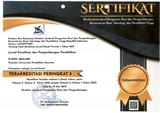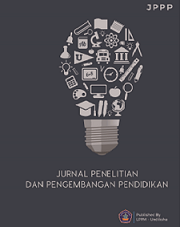Evaluation of the School Literacy Movement Program in Senior High School
DOI:
https://doi.org/10.23887/jppp.v7i1.60170Keywords:
Evaluation Program, Literacy, CIPPAbstract
The government launched a school literacy program at the education level to increase students' interest in reading and writing. This study was conducted to analyze how the literacy program works. This research is using CIPP evaluation model. The method used in this study is a qualitative research method with an evaluation research design by conducting observations, interviews, and examining program implementation documents. Sources of information were obtained through interviews with principals, educators, and students. The research results on the context component show that the CIPP of the School Literacy Movement of senior high school was successfully implemented. The literacy program is implemented with stages 1) Habituation of reading non-lesson books for 15 minutes before learning begins. 2) Learning with foreign language book reading activities, be it English, French, and Japanese books. 3) Development by requiring grade XII students to write a novel with a target of 1 school year which will be printed in April. These three stages follow the School Literacy Movement (GLS) guidelines.
References
Agustin, S., & Cahyono, B. E. H. (2017). Gerakan literasi sekolah untuk meningkatkan budaya baca di SMA Negeri 1 Geger. Linguista: Jurnal Ilmiah Bahasa, Sastra, Dan Pembelajarannya, 1(2), 55–62. https://doi.org/10.25273/linguista.v1i2.1973. DOI: https://doi.org/10.25273/linguista.v1i2.1973
Agustina, N., Ramdhani, I. S., & Enawar. (2022). Analisis Gerakan Literasi Pojok Baca Terhadap Minat Baca Kelas 4 SDN Bojong 04. Jurnal Pendidikan Dan Konseling (JPDK, 4(5), 1999–2003. https://doi.org/10.31004/jpdk.v4i5.6895.
Anandari, C. L., & Iswandari, Y. A. (2019). Extensive reading in Indonesian schools: a successful story. TEFLIN Journal, 30(2), 137–152. https://doi.org/10.15639/teflinjournal.v30i2/137-152. DOI: https://doi.org/10.15639/teflinjournal.v30i2/137-152
Ansari, M. I., Saidah, N., & Jumiati. (2020). Program Kampung Literasi dalam Menumbuhkan Minat Baca Siswa SD/MI Desa Pandulangan Hulu Sungai Selatan. JIEES : Journal of Islamic Education at Elementary School, 1(2), 60–72. https://doi.org/10.47400/jiees.v1i2.17. DOI: https://doi.org/10.47400/jiees.v1i2.17
Ansong-Gyimah, K. (2020). Students’ perceptions and continuous intention to use elearning systems: The case of google classroom. International Journal of Emerging Technologies in Learning, 15(11), 236–244. https://doi.org/10.3991/IJET.V15I11.12683. DOI: https://doi.org/10.3991/ijet.v15i11.12683
Atmazaki, N. B., Muldian, W., Miftahussururi, H., N., N., N., M., & Akbari, Q. S. (2017). Panduan Gerakan Literasi Nasional. Kementerian Pendidikan dan Kebudayaan.
Batubara, H. H., & Ariani, D. N. (2018). Implementasi Program Gerakan Literasi Sekolah Di Sekolah Dasar Negeri Gugus Sungai MIAI Banjarmasin. Jurnal Pendidikan Sekolah Dasar, 4(1), 15–29. https://doi.org/10.30870/jpsd.v4i1.2965. DOI: https://doi.org/10.30870/jpsd.v4i1.2965
Chuntala, A. D. W. (2019). Scientific approach in 21st century learning in Indonesian language learning vocational school of pharmacy. International Journal of Active Learning, 4(2), 71–77. https://journal.unnes.ac.id/nju/index.php/ijal/article/view/17181.
Desi, Y. P. (2020). Gerakan Literasi Digital Berbasis Sekolah: Implementasi dan Strategi. Jurnal Ilmu Komunikasi, 17(1), 51. https://doi.org/10.31315/jik.v17i1.3510. DOI: https://doi.org/10.31315/jik.v17i1.3510
Diana, & Juairiah. (2022). Implementasi Gerakan Literasi Sekolah (GLS) Untuk Menumbuhkan Minat Baca Siswa Di SMA Negeri 7 Banjarmasin. Jurnal El-Pustaka, 3(1), 67–80. https://doi.org/10.24042/el-pustaka.v3i1.12060.
Harjono, H. S. (2019). Literasi Digital: Prospek dan Implikasinya dalam Pembelajaran Bahasa. Pena : Education Journal of Language and Literature, 8(1), 1–7. https://doi.org/10.22437/pena.v8i1.6706. DOI: https://doi.org/10.22437/pena.v8i1.6706
Hidayat, M. H., Basuki, I. A., & Akbar, S. (2018). Gerakan Literasi Sekolah di Sekolah Dasar. Teori, Penelitian, Dan Pengembangan, 3(6), 810–817. https://doi.org/10.17977/jptpp.v3i6.11213.
Ifadah, A. S. (2020). Literasi : Pemahaman Konsep Budaya Literasi Baca - Tulis Untuk Anak Usia Dini. Jurnal Golden Age, 4(2), 290–296. https://doi.org/10.29408/goldenage.v4i02.2419. DOI: https://doi.org/10.29408/jga.v4i02.2419
Ika Febriandari, E. (2019). Penanaman Nilai Karakter Gemar Membaca Berbasis Pembiasaan Dan Keteladanan Terhadap Kemampuan Berbahasa Siswa Sekolah Dasar. AL-MUDARRIS, 2(2), 211. https://doi.org/10.32478/al-mudarris.v2i2.286. DOI: https://doi.org/10.32478/al-mudarris.v2i2.286
Ikhwanun, M., & Hayudinna, H. G. (2020). Gerakan Literasi Sekolah: Upaya Meningkatkan Literasi Dasar Siswa. Indonesian Journal of Islamic Elementary Education, 1(1), 87–97. https://doi.org/10.28918/ijiee.v1i1.3919. DOI: https://doi.org/10.28918/ijiee.v1i1.3919
Kartikasari, E., & Nuryasana, E. (2022). School literacy movement program in elementary school, Indonesia: Literature review. Journal of Education and Learning (EduLearn), 16(3), 336–341. https://doi.org/10.11591/edulearn.v16i3.20383. DOI: https://doi.org/10.11591/edulearn.v16i3.20383
Khofifah, S., & Ramadan, Z. H. (2021). Literacy conditions of reading, writing and calculating for elementary school students. Journal of Educational Research and Evaluation, 5(3), 342–349. https://doi.org/10.23887/jere.v5i3.37429.
Liansari, V., Taufiq, W., & Santoso, D. R. (2021). The Implementation of Literacy Culture Programs in Elementary School. Jo-ELT (Journal of English Language Teaching) Fakultas Pendidikan Bahasa & Seni Prodi Pendidikan Bahasa Inggris IKIP, 8(2), 189. https://doi.org/10.33394/jo-elt.v8i2.4481. DOI: https://doi.org/10.33394/jo-elt.v8i2.4481
Luma, M., Tola, A., & Hadirman. (2020). Evaluasi Implementasi K-13 Berdasarkan Model CIPP di SD Negeri 2 Tabongo Kabupaten Gorontalo. Jurnal Ilmiah Iqra’, 14(2), 186–204. https://doi.org/10.30984/jii.v14i2.1307. DOI: https://doi.org/10.30984/jii.v14i2.1307
Mardiani, N., & Wahyuni, S. (2022). Implementasi Gerakan Literasi Sekolah (GLS) Sebagai Upaya Meningkatkan Keterampilan Membaca Dan Menulis Di SMA Negeri 3 Batusangkar. JIPIS: Jurnal Ilmu Perpustakaan Dan Informasi Islam, 1(1), 8–14. https://doi.org/10.31958/jipis.v1i1.5946. DOI: https://doi.org/10.31958/jipis.v1i1.5946
Miles, B., Huberman, M., & Saldana, J. (2014). Qualitative Data Analysis: A Methods Sourcebook. SAGE Pub.
Mubai, A., Jalinus, N., Ambiyar, A., Wakhinuddin, W., Abdullah, R., Rizal, F., & Waskito, W. (2021). Implementasi Model Cipp Dalam Evaluasi Kurikulum Pendidikan Teknik Informatika. Edukatif : Jurnal Ilmu Pendidikan, 3(4), 1383–1394. https://doi.org/10.31004/edukatif.v3i4.549. DOI: https://doi.org/10.31004/edukatif.v3i4.549
Novalinda, R., Ambiyar, & Rizal, F. (2021). Pendekatan Evaluasi Program Tyler: Goal-Oriented. Edukasi: Jurnal Pendidikan, 18(1), 137–146. https://doi.org/10.31571/edukasi.v18i1.1644. DOI: https://doi.org/10.31571/edukasi.v18i1.1644
Pantiwati, Y., Permana, F. H., Kusniarti, T., & Sari, T. N. I. (2020). Model pembelajaran Li-Pro-GP (literasi berbasis proyek terintegrasi GLS dan PPK) [Li-Pro-GP learning model (GLS and KDP Integrated project-based literacy)]. Simposium Nasional Mulitidisiplin, 2, 79–84. https://doi.org/10.15294/jipk.v13i1.17824.
Priasti, S. N., & Suyatno. (2021). Penerapan Pendidikan Karakter Gemar Membaca Melalui Program Literasi di Sekolah Dasar. Jurnal Kependidikan : Jurnal Hasil Penelitian Dan Kajian Kepustakaan Di Bidang Pendidikan, Pengajaran, Dan Pembelajaran, 7(2), 395–407. https://doi.org/10.33394/jk.v7i2.3211. DOI: https://doi.org/10.33394/jk.v7i2.3211
Rakhmawati, Y., & Mustadi, A. (2022). The circumstances of literacy numeracy skill: Between notion and fact from elementary school students. Jurnal Prima Edukasia, 10(1), 9–18. https://doi.org/10.21831/jpe.v10i1.36427. DOI: https://doi.org/10.21831/jpe.v10i1.36427
Safitri, I., Marsidin, S., & Subandi, A. (2020). Analisis Kebijakan terkait Kebijakan Literasi Digital di Sekolah Dasar. Edukatif : Jurnal Ilmu Pendidikan, 2(2), 176–180. https://doi.org/10.31004/edukatif.v2i2.123. DOI: https://doi.org/10.31004/edukatif.v2i2.123
Srirahayu, D. P., Kusumaningtiyas, T., & Harisanty, D. (2021). The Role of the School Librarian toward the Implementation of the School Literacy Movement (Gerakan Literasi Sekolah) in East Java. Library Philosophy and Practice, 1–15. https://search.proquest.com/openview/3867add817b308af06f7b250ab023384.
Sugiyono. (2014). Metode Penelitian Pendidikan Pendekatan Kuantitatif, Kualitatif, dan R&D. Alfabeta.
Supadi, & Santoso, H. (2021). Implementasi Program Gerakan Literasi Sekolah Di SMA (Studi Evaluasi. IMProvement Jurnal Ilmiah Untuk Peningkatan Mutu Penddikan, 8(2), 1–9. https://doi.org/10.21009/improvement.v8i02. DOI: https://doi.org/10.21009/improvement.v8i2.21763
Suryawati, E., Suzanti, F., Suwondo, S., & Yustina, Y. (2018). The Implementation of School-literacy-Sovement: Integrating Scientific Literacy, Characters, and HOTS in ScienceLearning. Indonesian Journal of Biology Education, 4(3), 215–224. https://doi.org/10.22219/jpbi.v4i3.6876. DOI: https://doi.org/10.22219/jpbi.v4i3.6876
Suswandari, M. (2018). Membangun Budaya Literasi Bagi Suplemen Pendidikan Di Indonesia. Dikdas Bantara, 1(1), 20–32. https://doi.org/10.32585/jdb.v1i1.105. DOI: https://doi.org/10.32585/jdb.v1i1.105
Syarifuddin, B., A., A., & Arifin, S. (2017). Kajian Efektivitas Program Sanitasi Total Berbasis Masyarakat Berdasarkan Karakteristik Lingkungan Dan Evaluasi Program Di Kabupaten Banjar. Jurnal Berkala Kesehatan, 3(1), 1–8. https://doi.org/10.20527/jbk.v3i1.4846. DOI: https://doi.org/10.20527/jbk.v3i1.4846
Tahmidaten, L., & Krismanto, W. (2020). Permasalahan Budaya Membaca di Indonesia (Studi Pustaka Tentang Problematika & Solusinya). Scholaria: Jurnal Pendidikan Dan Kebudayaan, 10(1), 22–33. https://doi.org/10.24246/j.js.2020.v10.i1.p22-33. DOI: https://doi.org/10.24246/j.js.2020.v10.i1.p22-33
Venketsamy, R., & Sibanda, S. (2021). Exploring strategies teachers use to develop literacy skills among english first additional language learners in the foundation phase. Perspectives in Education, 39(2), 253–266. https://doi.org/10.18820/2519593X/pie.v39.i2.18. DOI: https://doi.org/10.18820/2519593X/pie.v39.i2.18
Widayoko, A., Koes, S., & Muhardjito. (2018). Analisis program implementasi Gerakan Literasi Sekolah (GLS) dengan pendekatan goal-based evaluation [Analysis of the School Literacy Movement (GLS) implementation program with a goal-based evaluation approach]. Jurnal Tatsqif : Pemikiran Dan Penelitian Pendidikan, 16(1), 78–92. https://doi.org/10.20414/jtq.v16i1.134. DOI: https://doi.org/10.20414/jtq.v16i1.134
Widianti, W., & Hidayati, N. (2021). Analysis of the mathematical literacy ability of junior high school students on triangle and quadrilateral material. Journal of Innovative Mathematics Learning, 4(1), 27–38. https://doi.org/10.22460/jpmi.v4i1.27-38.
Widodo, Agung. (2018). Makna Dan Peran Pendidikan Jasmani Dalam Pembentukan Insan Yang Melek Jasmaniah/Ter-Literasi Jasmaniahnya. Motion: Jurnal Riset Physical Education, 9(1), 53–60. https://doi.org/10.33558/motion.v9i1.1432. DOI: https://doi.org/10.33558/motion.v9i1.1432
Widodo, Antoni. (2020). Implementasi Program Gerakan Literasi Sekolah di Sekolah Menengah Pertama (SMP. Tarbawi: Jurnal Ilmu Pendidikan, 16(1), 11–21. https://doi.org/10.32939/tarbawi.v16i01.496. DOI: https://doi.org/10.32939/tarbawi.v16i01.496
Yunianika, I. T., & Suratinah. (2019). Implementasi Gerakan Literasi Sekolah di Sekolah Dasar Dharma Karya Universitas Terbuka. Jurnal Ilmiah Sekolah Dasar, 3(4), 497–503. https://doi.org/http://dx.doi.org/10.23887/jisd.v3i4.17331. DOI: https://doi.org/10.23887/jisd.v3i4.17331
Yunita Anindya, E. F., Suneki, S., & Purnamasari, V. (2019). Analisis Gerakan Literasi Sekolah Pada Pembelajaran Tematik. Jurnal Ilmiah Sekolah Dasar, 3(2), 238. https://doi.org/10.23887/jisd.v3i2.18053. DOI: https://doi.org/10.23887/jisd.v3i2.18053
Zaenab, S., Chamisijatin, L., & Wahyuni, S. (2020). Strengthening character education through literacy movement at Muhammadiyah junior high schol. Journal of Community Service and Empowerment, 1(1), 54–63. https://doi.org/10.22219/jcse.v1i1.11516. DOI: https://doi.org/10.22219/jcse.v1i1.11516
Downloads
Published
How to Cite
Issue
Section
License
Copyright (c) 2023 Unifah Rosyidi, Supadi

This work is licensed under a Creative Commons Attribution-ShareAlike 4.0 International License.
Authors who publish with the Jurnal Penelitian dan Pengembangan Pendidikan agree to the following terms:
- Authors retain copyright and grant the journal the right of first publication with the work simultaneously licensed under a Creative Commons Attribution License (CC BY-SA 4.0) that allows others to share the work with an acknowledgment of the work's authorship and initial publication in this journal.
- Authors are able to enter into separate, additional contractual arrangements for the non-exclusive distribution of the journal's published version of the work (e.g., post it to an institutional repository or publish it in a book), with an acknowledgment of its initial publication in this journal.
- Authors are permitted and encouraged to post their work online (e.g., in institutional repositories or on their website) prior to and during the submission process, as it can lead to productive exchanges, as well as earlier and greater citation of published work. (See The Effect of Open Access)







